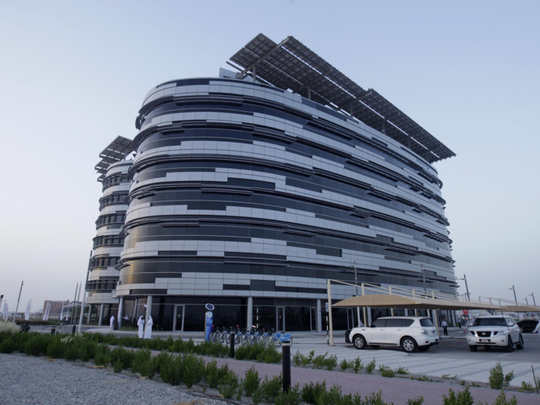
The worldwide energy transition has started as evidenced by the widespread concern about the need for the accelerated adoption of sustainable development and clean energy. As a result of major transformations in the global energy system that will gather pace over the next decades, renewable energy sources will be the main winners in the race to meet energy demand growth until 2040, according to the International Energy Agency (IEA).
Everything indicates that this clear trend — fully supported by renewable energy’s increasing competitiveness, the fast growing digital and technological progress and regulatory changes — will quickly spread out to the global marketplace.
One is struck by the progress the renewable energy sector has made in the Middle East and North Africa region. For decades, the Middle East has been the leading region for oil and gas production in the world, but it strives today to embrace the post-oil world.
Benefitting from extraordinary natural conditions, especially sun, and to a lesser extent wind, the Middle East is now heavily promoting renewable energy due to its potential, as can be seen by the growth of Abu Dhabi Sustainability Week, which this month expects to receive as many as 38,000 attendees.
The possibilities are almost endless. For example, it will be possible in the future to desalinate sea-water affordably by using renewable energy technologies. Grid parity for solar energy has already been realised in a number of regions round the world, and that makes solar a potentially lucrative market.
So where do we stand today? The Paris Agreement, which entered into force on November 4, last year, is a major step forward in the fight against global warming. For the first time, the whole world now has an “action agenda” to enhance implementation of climate initiatives. Those in the private sector hope there will be a positive outcome from the international negotiations on mitigating climate change. We expect a clear and strong signal on setting a carbon price floor. There is no doubt that such a measure will accelerate the global adoption of renewable energy and sustainable development.
In the last couple of years, we’ve seen unprecedented forward momentum globally in the fight against climate change. I believe this is just the beginning. For example, power generation — particularly for transport and electricity — currently represents 60 per cent of global emissions. I am convinced that electricity is a leading vector for reducing this percentage, through the increasing adoption of low-carbon energy solutions.
The whole EDF Group is fully committed to its climate pledge — to act as a responsible energy company in the reduction of carbon emissions. Our energy mix is strongly balanced in favour of low-carbon energy. This mix is based on complementary factors: The stability and flexibility provided by nuclear power, the flexibility of our hydraulic assets, and our increasing capacity in both wind and solar power.
We will adhere to this climate strategy in several ways, taking into account our second-to-none nuclear power assets base. First, our CAP 2030 strategic project will almost double our renewable energy portfolio from 28 gigawatts (GW) to 50GW within our whole generating fleet and it will continue our investments and strengthen our position in key countries like those in the Middle East.
In addition, the EDF Group is supporting clients by providing solutions for their whole energy services needs through a complete range of efficient solutions, namely: Smart grids and smart city projects, energy efficiency, heating/cooling networks, feasibility studies and engineering support services, and transport and distribution expertise.
Finally, we will always stay focused on innovation. For example, the EDF Group has successfully managed to develop and demonstrate new technology for “hybrid” renewable energy storage solutions, largely to offset the intermittent nature of renewable energy. We are also integrating digital and new information technologies within the electricity network.
There is no single story where the future of global energy is concerned. International cooperation is key to tackling the world’s pressing energy challenges. There is a clear need to encourage greater dialogue between industry decision makers, experts, scientists, business leaders and academics stakeholders — to strengthen strategic partnerships and to empower our youth and entrepreneurs.
This month’s Abu Dhabi Sustainability Week will help bring about such dialogue and cooperation and to unlock the many opportunities inherent in sustainable development and renewable energy.
Antoine Cahuzac is the senior executive vice-president for Renewable Energies at EDF Group and chief executive officer of EDF Energies Nouvelles.










